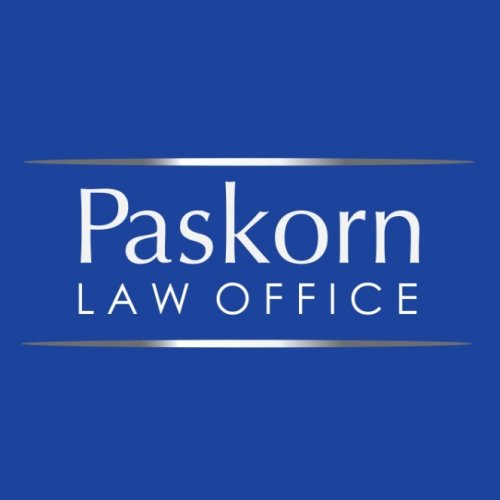Best Nonprofit & Charitable Organizations Lawyers in Phuket
Share your needs with us, get contacted by law firms.
Free. Takes 2 min.
List of the best lawyers in Phuket, Thailand
Legal guides written by SIAM LEGAL INTERNATIONAL:
- Defamation Laws in Thailand: Criminal Charges and Civil Suits
- The State of Thailand’s Long-Term Resident (LTR) Visa Program in 2025
- The Penalties Of Not Filing Your Income Tax Return As A Foreigner In Thailand
About Nonprofit & Charitable Organizations Law in Phuket, Thailand
Nonprofit and charitable organizations play a crucial role in fostering social welfare and development in Phuket, Thailand. These organizations focus on various causes, including education, health, environmental protection, and community upliftment. The legal framework governing these entities is intended to help manage their operations efficiently, ensure transparency, and maintain public trust. The Department of Provincial Administration in Thailand oversees the registration and regulation of nonprofit organizations, ensuring adherence to national and local laws.
Why You May Need a Lawyer
Engaging with nonprofit and charitable organizations in Phuket, Thailand, can often necessitate legal guidance for several reasons:
- Establishment & Registration: Forming a nonprofit requires navigating complex legal processes for registration and compliance with Thai law.
- Tax Compliance: Understanding nonprofit tax obligations, potential exemptions, and filings is crucial for maintaining legal status.
- Regulatory Compliance: Ensuring that the organization's activities and financial practices meet all legal requirements can prevent costly legal disputes or penalties.
- Contract Management: Drafting and reviewing contracts related to donations, partnerships, and employment to mitigate risk.
- Intellectual Property: Protecting the organization’s intellectual property, such as trademarks or copyrighted material, to safeguard its brand and resources.
Local Laws Overview
Several key legal aspects must be considered by nonprofit and charitable organizations operating in Phuket, Thailand:
- Registration: Organizations must be formally registered with the Department of Provincial Administration. This involves submitting a constitution and a list of the governing board members.
- Annual Reporting: Nonprofits are required to submit annual reports detailing their activities and financial statements, ensuring transparency and accountability.
- Taxation: While some nonprofits may enjoy tax exemptions, they must actively seek such statuses and comply with reporting requirements.
- Fundraising Regulations: Specific rules govern fundraising activities, including obtaining permits for public fundraising events.
- Employment Law: Compliance with national labor laws is mandatory when hiring employees, including adherence to minimum wage and working condition standards.
Frequently Asked Questions
What is the process for registering a nonprofit organization in Phuket?
Registration requires submitting an application to the Department of Provincial Administration, including the organization’s charter, a list of board members, and details of the organization’s purpose and activities.
Are nonprofit organizations subject to taxation in Thailand?
Nonprofits may be eligible for certain tax exemptions, though they must apply for this status and meet specific criteria. However, they must still file annual tax returns.
Can foreigners establish a nonprofit in Thailand?
Yes, but the organization must have a management board comprising at least one Thai national, and foreigners must comply with visa and work permit requirements.
What are the legal requirements for fundraising in Phuket?
Organizations must obtain a permit from local authorities to conduct public fundraising activities, demonstrating that funds will be used for charitable purposes.
How can a nonprofit protect its intellectual property?
Nonprofits should register trademarks and copyrights for their logos, branding, and other intellectual properties to protect against unauthorized use.
Are there specific employment laws that nonprofits must follow?
Yes, nonprofits must adhere to Thai labor laws, which govern employment conditions, minimum wage, and employee rights.
What happens if a nonprofit fails to comply with reporting requirements?
Failure to comply can result in fines, legal action, or the revocation of the organization’s legal status. Thorough compliance with all reporting requirements is essential.
Can a nonprofit buy and own property in Thailand?
Nonprofits can own property, but they must follow specific procedures and reporting requirements related to property ownership.
What legal documents are essential for nonprofit operations?
Key documents include the organization’s charter, trust deed, governance policies, employment contracts, and financial records.
How can a lawyer help with partnership agreements?
Lawyers can ensure that partnership agreements are legally sound, protecting the organization’s interests and defining clear expectations for all parties involved.
Additional Resources
Those seeking further information or assistance can reach out to the following resources:
- Department of Provincial Administration: Responsible for nonprofit registration and regulations.
- Thai Revenue Department: Offers guidance on tax obligations and exemption applications for nonprofits.
- Bar Associations in Thailand: Can assist in finding qualified legal professionals specialized in nonprofit law.
- Local Legal Aid Clinics: Provide free or low-cost legal services to nonprofit organizations.
- International NGOs in Thailand: Often share resources and insights on best practices for managing nonprofits in the country.
Next Steps
If you need legal assistance for your nonprofit organization in Phuket, Thailand, consider the following steps:
- Assess Your Needs: Determine the specific legal assistance your organization requires, whether it’s related to registration, compliance, taxation, or other areas.
- Consult with Experts: Contact a legal professional with experience in nonprofit law to discuss your organization’s needs and potential legal strategies.
- Prepare Documentation: Gather all necessary legal and organizational documents to expedite any legal processes.
- Follow Up: Regularly communicate with your legal advisor to ensure that your organization remains compliant with evolving laws and regulations.
Lawzana helps you find the best lawyers and law firms in Phuket through a curated and pre-screened list of qualified legal professionals. Our platform offers rankings and detailed profiles of attorneys and law firms, allowing you to compare based on practice areas, including Nonprofit & Charitable Organizations, experience, and client feedback.
Each profile includes a description of the firm's areas of practice, client reviews, team members and partners, year of establishment, spoken languages, office locations, contact information, social media presence, and any published articles or resources. Most firms on our platform speak English and are experienced in both local and international legal matters.
Get a quote from top-rated law firms in Phuket, Thailand — quickly, securely, and without unnecessary hassle.
Disclaimer:
The information provided on this page is for general informational purposes only and does not constitute legal advice. While we strive to ensure the accuracy and relevance of the content, legal information may change over time, and interpretations of the law can vary. You should always consult with a qualified legal professional for advice specific to your situation.
We disclaim all liability for actions taken or not taken based on the content of this page. If you believe any information is incorrect or outdated, please contact us, and we will review and update it where appropriate.













